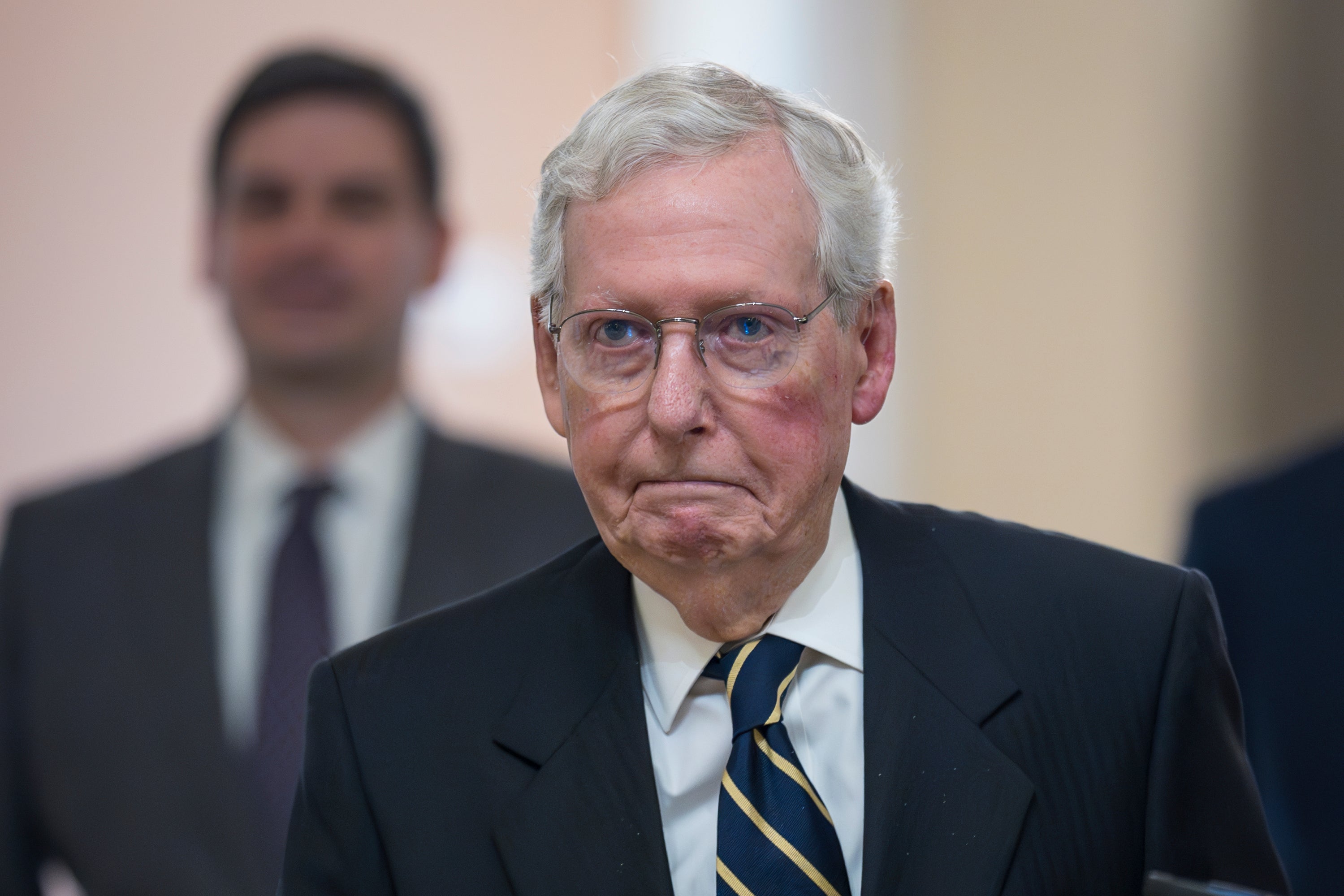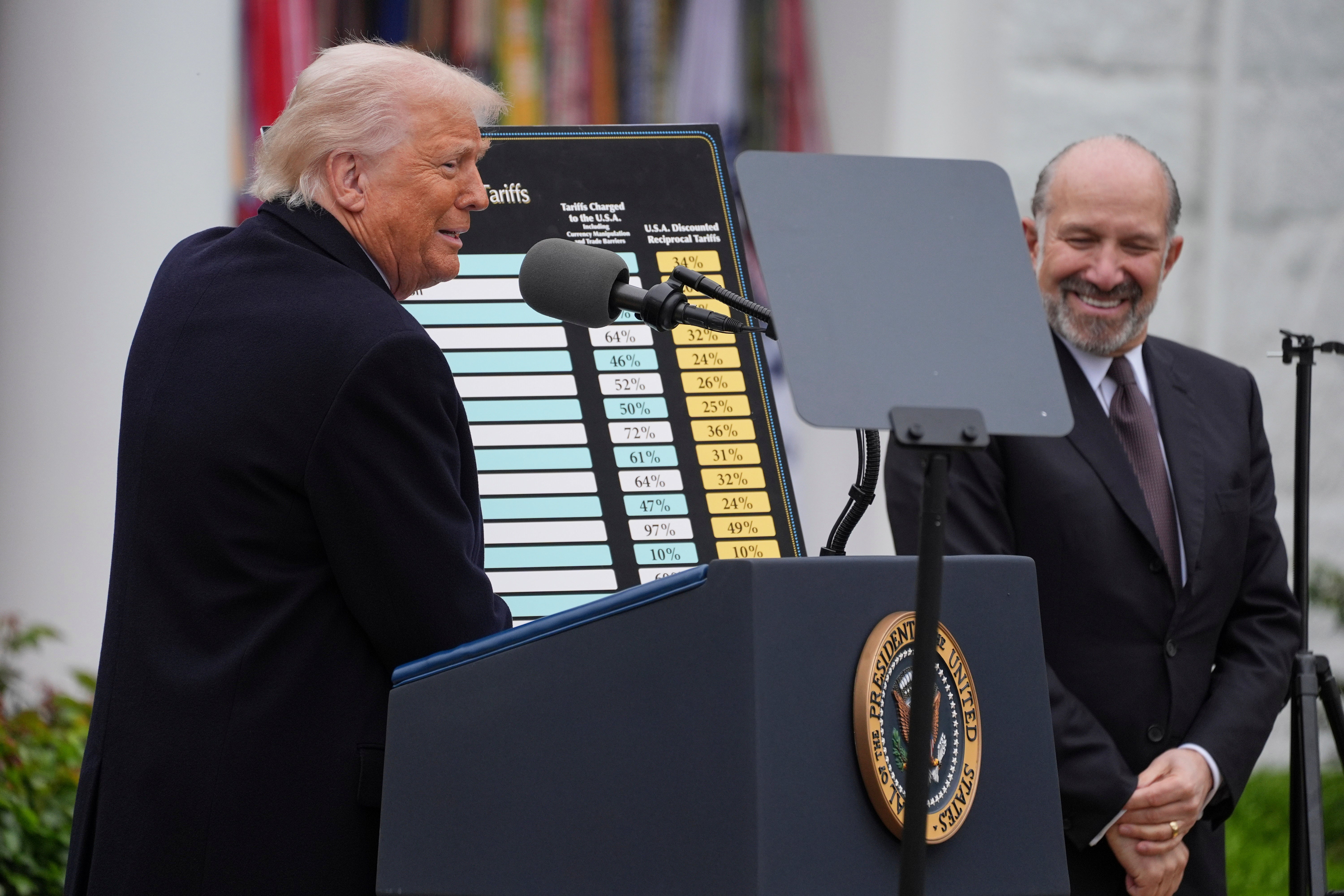Shorouk Express
Sign up for the daily Inside Washington email for exclusive US coverage and analysis sent to your inbox
Get our free Inside Washington email
Get our free Inside Washington email
Free trade advocates in the Republican Party’s old guard piled on Donald Trump as the stock market tumbled sharply downwards on Thursday in response to the White House’s tariff plan.
Wednesday’s announcement of across-the-board tariffs on nearly all countries that export goods to the US sent markets spiraling in after-hours trading, which solidified into a steep drop Thursday morning. Reuters reported that the first US job losses from import tariff hikes were taking place in Michigan and Indiana, where automaker Stellantis announced hundreds of “temporary” layoffs due to idling production facilities in Mexico and Canada.
Signs of the backlash from within conservative circles were already evident Wednesday afternoon, as a handful of GOP senators including former Majority Leader Mitch McConnell sided with Democrats to condemn the president’s trade action.
“Make no mistake: goods made in America will be more expensive to manufacture and, ultimately, for consumers to purchase, with higher broad-based tariffs,” McConnell said after his vote.

open image in gallery
Center-right media hammered Trump on Thursday while US allies showed no signs of backing down and instead openly plotted their own tariff measures in response. A trade war appears imminent on the road ahead.
“Assuming the policy sticks—and we hope it doesn’t—the effort amounts to an attempt to remake the U.S. economy and the world trading system,” the Murdoch-owned Wall Street Journal editorial board wrote Thursday morning.
“[I]f the response is widespread retaliation, the result could be shrinking world trade and slower growth, recession, or worse,” the Journal continued. “There will certainly be higher costs for American consumers and businesses.”
On The Bulwark, host Jonathan Last sarcastically quipped Thursday: “The woke socialist markets do not seem to appreciate the brilliance of Trump’s beautiful, very strong tariffs.”
The White House fired out its own news release highlighting praise from a handful of industry trade groups, as well as Republican members of Congress. But over Wednesday evening and Thursday morning the media and economic experts spent the hours picking apart apparent inconsistencies and other confusing aspects of the “liberation day” announcement.
A top target of ridicule for the White House’s usual critics were the 10 percent duties levied on the Heard and McDonald Islands, a remote pair of islands controlled by Australia with no human population and “extremely limited” fishing activity, according to Forbes. Virtually zero exports from the penguin-infested rocks reach the US.
“Impressed the crack White House economic team not only found the Heard and McDonald Islands—an uninhabited Australian territory which is a two week sail from the mainland requiring a permit to visit—but that they managed to figure out the optimal retaliatory tariff to impose on penguins,” wrote Justin Wolfers, a senior fellow at the Brookings Institution.

open image in gallery
On consumer news channel CNBC, one reporter could not hide his disdain for the formula used to calculate the “reciprocal” tariffs put into place by the White House, which according to a number of economists did not appear to actually factor in tariffs put into place by US trade partners.
“I started calling international trade economic experts,” Steve Liesman said on the network Thursday morning. “Nobody ever heard of this formula. Nobody has ever used this formula. So I’m sorry, but the conclusion seems to be that the president kind of made this up as he went along. He made it up.”
Ian Bremmer of the Eurasia Group, added: “This is incredibly stupid.”
Yale’s nonpartisan Budget Lab was out with increasingly dire predictions for the US economy after the president’s announcement this week. Clothing and apparel prices are set to spike by nearly 20 percent nationwide, according to an analysis published Wednesday, while the overall economy will shrink and American households in the middle income bracket will be hit with an annual income loss of around $1,700.
With the Trump administration under a self-acknowledged mandate to bring down consumer prices and inflation, the president could be setting Republicans up in a very uncomfortable spot come midterm season. The state of the US economy is likely to be very close to the top of voters’ minds as congressional reelection campaigns begin in earnest next year (and later in 2024, for some). High grocery prices and other issues caused by a trade war could easily lead voters to hand the House back to Democratic control for the remainder of Trump’s term, even if the Senate remains out of reach.
The real danger Trump faces could be from dividing the coalition which has now elected him twice: traditional Republican voters who want to see the US economy grow and thrive, and MAGA true believers who are willing to see a contraction if it means reorganizing the economy under an “America First” vision.
Democrats, of course, are counting on this as their party continues to grapple with a crisis of confidence. Voters remain unhappy with congressional Democrats, especially Senate Minority Leader Chuck Schumer, amid the DOGE-ification of the federal government and the collapse of Democratic resistance in the Senate, both in the face of the Laken Riley Act and more recent government shutdown fight.
Schumer, who saw his party shed three seats in the Senate last year, maintains that he still has a winning record in terms of both elections and legislating. A tanking US economy could make that pronouncement a reality come next year.
If Trump doesn’t see things turn around for the US economy before the end of the year, he could well end up handing Schumer a lifeline right when his rival needs it most.






















